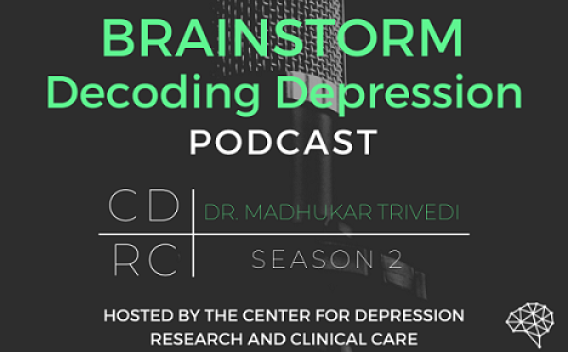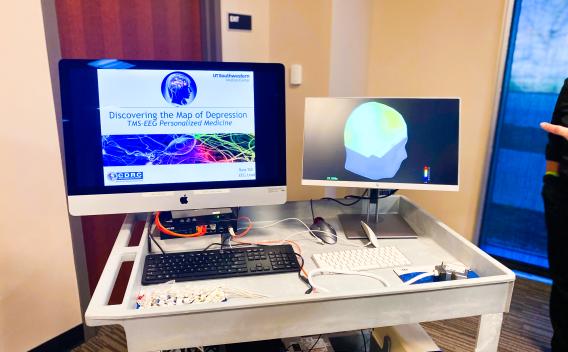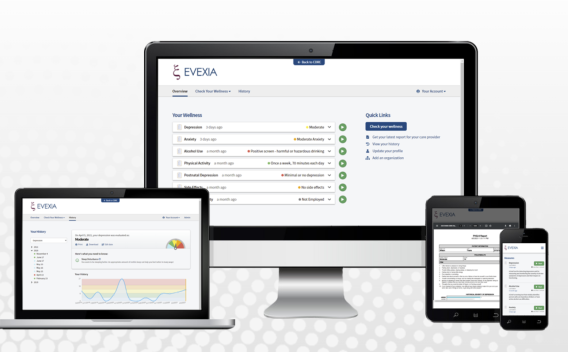Partnering with clinical and community members
The Pediatric Mood Disorder Network was established in 2017 with the goal of collaborating with clinical and community members to address gaps in the treatment of depression. Since the establishment of the pediatric network, our center has served more than 10,000 children and adolescents.
We partner with clinical and community members to address gaps in the screening, diagnosis, treatment, and management of depression and other mood disorders. We aim to increase access and to improve the quality of mental health care for patients utilizing Measurement-Based Care (MBC) through:
- Universal depression screening
- Utilization of the PHQ9, a validated depression self-report measure
- Provider training in MBC for patients with a depressive disorder diagnosis
- Provider support through continuing medical education and consultation
Making depression the 6th vital sign.
VitalSign6 is a web-based software available to pediatricians and primary care physicians to help detect depression and integrate depression treatment into primary care. The CDRC's longest running program, VitalSign6 has been used to screen over 63,000 patients across 48 partner clinics.
The program utilizes an innovative web-based application to administer the Patient Health Questionnaire (PHQ) and other Measurement-Based Care (MBC) systematic assessments to patients. Patients complete the measures on an iPad during the triage process, thus making screening for depression the sixth vital sign after body temperature, pulse rate, respiration rate, blood pressure, and pain.
Objective
- Improve access to behavioral health care for all patient populations by systematically identifying patients with depression and initiating treatment within the primary care setting.
Optimized Outcomes
The evidence-based treatment guidelines of VitalSign6 are opening up the door for more and more patients to achieve remission of their depressive symptoms.
Participating VitalSign6 clinics have access to a variety of educational resources developed by the VitalSign6 team. Composed of psychiatrists, psychologists, medical social workers, and other staff, this team provides structured guidance on the use of evidence-based pharmacotherapy and brief psychosocial interventions. They are available, either on-site or via phone, to assist primary care clinics with any aspect of MBC for patients with depression.
The integration into standard practice of a scientifically validated, measurement-based care (MBC) program for the treatment of depression for patients who screen positive.
Objective
- Optimize depression treatment outcomes (symptom severity, side-effect burden, and adherence) by providing education and structured guidance on the use of evidence-based pharmacotherapy and brief psychosocial interventions, as well as training in the implementation of validated care coordination strategies
The concept of MBC for the treatment of depression includes the systematic assessment of:
- Depressive symptoms
- Antidepressant treatment side effects
- Antidepressant treatment adherence
These MBC assessments are given at defined intervals using validated rating scales with the goal of reaching full remission.
All instruments are available in English and Spanish.
The concept of MBC for the treatment of depression includes the systematic assessment of depressive symptoms, antidepressant treatment side effects, and antidepressant treatment adherence at defined intervals using validated rating scales with the goal of reaching full remission.
The Annual Screen
VitalSign6 prompts participating clinics to screen every patient for depression annually. In an initial screen, patients use the iPad application to complete a shortened, two-item version of the Patient Health Questionnaire (PHQ-2). If a patient has a positive PHQ-2 score, the application automatically administers additional assessments, including the full PHQ-9. VitalSign6 displays these results to providers and guides them in making a diagnosis and selecting a treatment plan.
MBC in Primary Care
Once a provider diagnoses a patient with depression, that patient is initiated into measurement-based care (MBC). At every follow-up visit, patients in MBC use VitalSign6 to complete a set of assessments measuring the three critical areas of MBC: symptoms, side effects, and medication adherence. Providers use these sequential measurements to narrow the scope of their mental health interview with patients while still providing thorough, high-quality care.
Listen to our community partners share their experience.
Engaging Community
On our Brainstorm podcast, we decode the science of mood disorders through discussions with a leading expert in the field, Dr. Madhukar Trivedi. We’re here to change the way we think and talk about depression, in an accessible, approachable way.
Find out more
Improving Treatments for Depression
The CDRC has been involved in many of the pivotal studies involving the establishment of the efficacy of antidepressant treatments, examining next steps in treatment-resistant depression to develop algorithms and guidelines, and developing and validating biomarkers to reach the goal of precision medicine for mood disorders.
Find out more
Monitoring for Wellness
Self-monitoring involves keeping a personal record of your moods and behaviors in order to track trends over time. This allows individuals to observe how their mental state changes and provides concrete data to show how they are progressing, and which symptom profiles need attention.
Find out more
Solving Depression, Saving Tomorrows
Be part of the great impact we're having on science and medical care across the globe.
The Center for Depression Research and Clinical Care has one vision: a future free from the burden of depression. More than a center, we are a community of committed faculty and staff, collaborators, clinicians, research participants, and community partners, as well as, the donors and advocates who are critical to our mission. Our community is what keeps us going and allows us to move closer to realizing our vision.